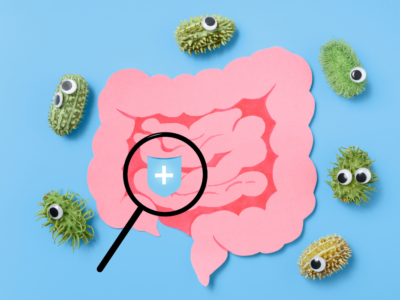While a good prenatal is important and will give you a great base, it’s not going to give you everything at the levels you need. While I always recommend a food-first approach in pregnancy, there are a few additions to your prenatals that you should consider.
Recent studies show that your body’s requirements for many essential nutrients are much higher than previously thought and a lot of pregnant women are deficient in key nutrients. Plus, many prenatal vitamins only include the bare minimum amounts of certain nutrients, which prevent severe deficiency but don’t necessarily focus on optimal nutrition. Having said that, needs are highly individualized so the purpose here is to chat with your healthcare provider so you have a thorough understanding of your specific baseline needs.
Here are the top 6 supplements you may need in addition to your prenatal:
1. Iron
Over 40% of pregnant women worldwide are deficient in iron, especially in your third trimester when your blood volume peaks. Needs are increased by one and half times in pregnancy so be sure to get your levels tested at the start of pregnancy, midway and in your third trimester. You will most likely need to supplement with additional iron if you are a vegetarian/vegan or have a history of iron deficiency such as anemia or heavy periods. Plus, not all prenatals contain iron or in the amounts that your body needs right now. Some women can’t tolerate iron at the start of pregnancy so choose a prenatal without iron. When looking for iron, aim for it in the form of iron bisglycinate so it is better absorbed with fewer side effects (i.e. constipation).
2. Magnesium
Magnesium deserves a special shout out here. If you experience constipation, leg cramps, headaches or poor sleep, which are all signs of potential magnesium deficiency, then I recommend supplementing beyond what’s in your prenatal. However, not all magnesium is created equal. Let’s break it down:
- Magnesium glycinate- this is the most absorbable form. It helps with anxiety and sleeplessness. Magnesium malate is also well absorbed.
- Magnesium citrate- This form can ease constipation and night leg cramps. If you develop loose stools then you may need to reduce your dose.
- Magnesium oxide or carbonate- these are cheaper versions of magnesium and I recommend you avoid them.
3. Choline
Choline is crucial for brain development and works with folate to prevent neural tube defects. For mama, it helps to build and maintain your cell membranes, brain, nervous system and muscles. While you can obtain a decent amount of choline from food (best sources are eggs, organ meat, red meat, some fish and plant-based foods like legumes and cruciferous veggies) many women’s diet fall short (especially if you don’t eat eggs) and not all prenatals include Choline.
4. Omega-3 Fatty Acids
Omega-3 Fatty Acids are essential for your baby’s brain and neurological development. For mama, it can improve mood, promote heart health and reduce inflammation. I recommend a supplement that contains both DHA/EPA which is typically derived from fish oil. If you are vegetarian or vegan, know that most algae-based supplements contain DHA and not EPA so be sure to check the label carefully. I also recommend that you check to see whether a product is third party verified by the International Fish Oil Standards or look for the GOED quality seal on the label as well as sustainably sourced by Friends of the Sea. If you find that you are burping up fish, first make sure it’s not expired, and second you may need to find one that is sourced better or a little trick is to keep the bottle in the freezer. It works!
5. Probiotic
Most prenatals don’t include probiotics, and there are many reasons to add probiotics into your supplement mix while pregnant. Research shows that the inclusion of probiotic-rich foods and/or supplements, especially in late pregnancy, can reduce a child’s risk of developing chronic immune diseases like eczema, food allergies, asthma and dermatitis. Additionally, if you have a history of antibiotic use or know you are going to have a C-section, I recommend you take a probiotic.
6. Vitamin D
Unless you get thirty minutes or more of midday sun and your levels are in optimal range, you need to take a supplement. Chances are your prenatal does not contain enough Vitamin D. While the RDA for Vitamin D3 is 600 ius/day, The Endocrine Society says that pregnant women may need closer to one thousand five hundred to two thousand IUs a day. Some studies even recommend four thousand IUs/day. I recommend starting with 2,000ius/day and get your levels checked after a few months and then supplement accordingly.
Want to learn more? Order my new book, “The Big Book of Pregnancy Nutrition” on Amazon now!



